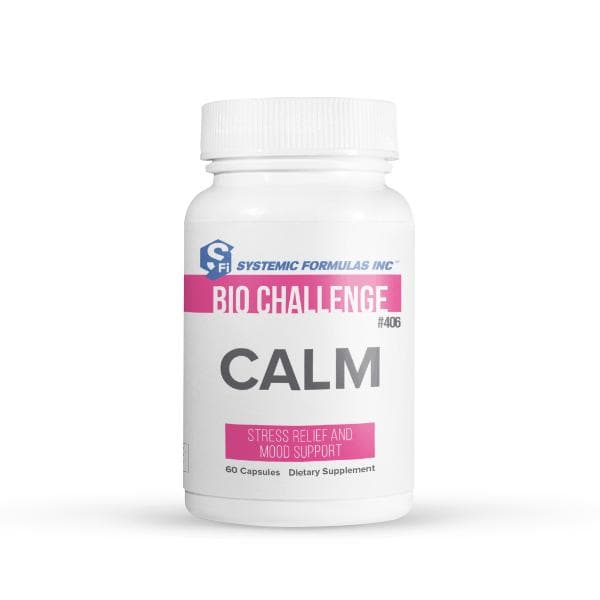The Official 2023 Holiday Stress Guide

Share
While the holiday season is filled with good cheer for most, it can be stressful for others. This article will discuss the top causes of holiday stress, the signs and symptoms to watch for, and the best ways to treat it naturally.
Top Causes of Holiday Stress
There are many potential causes of holiday stress. Here are the most frequent reasons:
- Lack of money
- The pressure of giving gifts
- Lack of time
- Staying on a diet/gaining weight
- Loneliness/loss of family or friends
- Other holiday shoppers
- Gifts getting lost or delivered late
- Health and safety concerns due to colds and flu
- The commercialism of the holidays
The top signs and symptoms of stress typically include the following:
- Changes in eating or sleeping habits
- Not feeling joy or happiness doing activities that used to be pleasurable
- Feeling overwhelmed
- Irritable
- Becoming withdrawn
Knowing the causes of holiday stress and their symptoms, we can take the necessary steps to protect ourselves and reduce their impact.
Dealing with Holiday Stress
In addition to recognizing the signs of holiday stress, learning how to decrease their effects is critical. Here are the top ways to manage holiday stress.
Tip #1. Don’t be afraid to say “no.”
Many people are stretched too thin during the holidays. Between holiday parties, working overtime, raising a family or other activities, it’s easy to become overwhelmed. Set boundaries and do what is comfortable or enjoyable. By saying “no” sometimes, stress levels could be decreased dramatically.
Tip #2. Don’t overspend.
Money and finances are some of the biggest sources of holiday stress, and the current economic climate only magnifies the problem. Create a realistic budget and stick to it. Don’t be afraid to tell loved ones you are on a budget: many will understand and might be relieved someone else said it first.
Another option is to focus on sentimental gifts instead of material ones. Give small, inexpensive gifts that a person can use. For many, it’s the thought that counts.
Tip #3. Put yourself first.
For many, this might be the hardest tip to perform. Human nature is to sacrifice and put others’ pleasure before their own. This can result in many neglecting their own health or happiness. Over time, this could cause anger, resentment, or not feeling appreciated.
Tip #4. Get organized.
A big component of stress is the need to be organized. Clutter can cause feelings of helplessness, frustration, anxiety, difficulty concentrating, and being overwhelmed. Creating a plan for the holidays provides structure, which can alleviate feelings of “mental clutter.” Making a “to-do list” (and sticking to it) is one of the best ways to get organized.
Tip #5. Pay homage to those you’ve lost.
For many, the holidays are difficult because thoughts turn to those they’ve lost, or distance makes it impossible to spend time together with those they care about. Here are a few ways to overcome feelings of loss or separation during the holidays:
- Acknowledge feelings of sadness as part of the grieving process
- Avoid consuming excess food or alcohol to cope
- Continue traditions celebrated with loved ones
- Create new traditions
- Volunteer at local organizations to help others (homeless shelter, animal shelter, etc.)
Tip #6. Get exercise daily.
Exercise is one of the most popular ways to alleviate stress levels during the holidays and year-round.
Exercise has been shown to have many positive effects on the body, including reducing inflammation and the stimulation of endorphins, mitochondria, neurotransmitters, and the pituitary axis in the brain. These changes could positively impact those suffering from anxiety, stress, depression, and other mood disorders.[1]
Here are a few of the most popular stress-reducing exercises:
- Kickboxing
- Yoga
- Tai-chi
- Walking
- Swimming
- Strength training
- Jogging
- Dancing
- Gardening
Aim for 30-60 minutes of exercise daily, 3-5 times weekly.
Bonus tip: Low vitamin D levels have been linked to increased symptoms of depression and anxiety.[2] This can be magnified during winter when combined with shorter daylight hours and holiday stress. In addition to exercising outdoors, consuming vitamin D supplements helps increase vitamin D levels and boost mood. For more information on powerful all-natural vitamin D supplements, click HERE.
Tip #7. Consume Nutritious Foods for Holiday Stress
Foods consumed can have a direct impact on health, both mentally and physically. This can be magnified during the holidays as people turn to eating comfort foods to help them feel better:
- Studies indicate specific aspects of diet can lead to acute changes in mood and behavior and increase the risk of inflammation. In addition, this change in diet habits could lead to obesity and stress-related mental disorders such as depression.[3]
- Chronic stress and easy access to foods high in sugar could increase the risk of sugar overconsumption. Stress can increase the desire to consume “comfort foods,” typically high in sugar. Studies indicate nearly 40% of people report eating more in response to stress and consuming sugar to cope with stress could increase the risk of chronic overeating, obesity, and other related conditions.[4]
Here are some of the best and worst foods for stress and anxiety:
|
Best Foods For Stress |
Worst Foods For Stress |
|
Berries |
Alcohol |
|
Tea (Chamomile and Green tea) |
Artificial sweeteners |
|
Garlic |
Fast food |
|
Dark chocolate |
Pretzels |
|
Nuts: almonds, walnuts |
Hydrogenated oil |
|
Asparagus |
Ice cream |
|
Grass-fed beef |
Sugar |
|
Blueberries |
High sodium foods |
|
Spices (Turmeric, ginger, licorice) |
Caffeine |
|
Kale |
Processed foods |
Tip #8. Try all-natural stress supplements.
In addition to the foods listed above, supplements can be consumed that are specifically designed to alleviate feelings of stress and anxiety. The following all-natural supplements might be beneficial for those suffering from holiday stress:
PTS/Stress Remedy
PTS/Stress Remedy is a homeopathic treatment that provides temporary relief for a variety of stress symptoms: 
- Difficulty sleeping
- Lack of concentration
- Restlessness
- Irritability
- Post traumatic stress
- Fight or flight response
This product comes in liquid form with dosages of 1-2 drops under the tongue. This allows it to be quickly absorbed by the body for immediate relief.
CALM 406
CALM 406 was specifically created to promote feelings of calmness and relaxation during times of stress. This is accomplished by providing the body with nutrients that are key in the synthesis of serotonin, dopamine, and other neurotransmitters that promote feelings of tranquility.
CALM 406 contains many all-natural ingredients that are often used to help relieve stress: 
- Vitamin B6
- Vitamin B1
- Taurine
- DHEA
- Tryptophan
- GABA
Seriphos - Stress Support
Seriphos - Stress Support contains a unique blend of calcium, magnesium, and phosphorus, which helps to promote a balanced and healthy response to stress. In addition, this synergistic mix of ingredients assists in regulating key aspects of cellular function while providing maximum absorption and bioavailability.
Tip #9. If all else fails, seek professional help.
If stress and anxiety are still overwhelming, consider seeking professional help. Experts who specialize in mental health may be able to identify key stressors and determine the best ways to treat them.
Summary
The holidays are a time of happiness and joy for some, but they can also be a time of sadness or grief for others. For those suffering from holiday stress, listen to your body and try the above tips to ease these feelings. Do you suffer from holiday stress? Leave us a comment, tell us how you cope, and share any additional tips you may have.
References:
- Kathleen Mikkelsen 1, Lily Stojanovska 1, Momir Polenakovic, (et al). Exercise and mental health. Maturitas. 2017 Dec;106:48-56. doi: 10.1016/j.maturitas.2017.09.003. Epub 2017 Sep 7.[PMID: 29150166].https://pubmed.ncbi.nlm.nih.gov/29150166/
- Şerife Akpınar, Makbule Gezmen Karadağ. Is Vitamin D Important in Anxiety or Depression? What Is the Truth? Curr Nutr Rep. 2022; 11(4): 675–681. Published online 2022 Sep 13. doi: 10.1007/s13668-022-00441-0. [PMID: 36097104]. https://www.ncbi.nlm.nih.gov/pmc/articles/PMC9468237/
- J Douglas Bremner, Kasra Moazzami, Matthew T Wittbrodt, (et al). Diet, Stress and Mental Health. Nutrients. 2020 Aug 13;12(8):2428. doi: 10.3390/nu12082428. [PMID: 32823562].https://pubmed.ncbi.nlm.nih.gov/32823562/
- Matthew S. Tryon, Kimber L. Stanhope, Elissa S. Epel, (et al). Excessive Sugar Consumption May Be a Difficult Habit to Break: A View From the Brain and Body. J Clin Endocrinol Metab. 2015 Jun; 100(6): 2239–2247. Published online 2015 Apr 16. doi: 10.1210/jc.2014-4353. [PMID: 25879513]. https://www.ncbi.nlm.nih.gov/pmc/articles/PMC4454811/
